News
Power supply: NASG distributed 150 transformers

Governor Abdullahi Sule of Nasarawa State has said that his administration has so far distributed 150 transformers aimed at improving power supply across the state.
This is just as Governor Sule expressed readiness to build another power substation estimated at five hundred million naira, in order to improve electricity supply especially in Lafia, the state capital.
Governor Sule made this known when he met with Regional Manager of the Abuja Electricity Distribution Company (AEDC), Engr. Baro Ahmed, at the Government House on Wednesday.
The meeting, which was at the instance of the Governor, was aimed at addressing the persistent power supply problem, especially in Lafia and environs.
According to the Governor, though it shouldn’t be the business of government to buy transformers, especially that AEDC is the only company responsible for collecting revenue from power consumers, his administration has gone ahead to buy 150 transformers in order that communities in the state could be linked to the national grid.
He showed his readiness to enter an agreement with the management of the AEDC with a view to constructing another power substation in Lafia, estimated to cost five hundred million naira.
The Governor thereafter directed the General Manager of the Nasarawa Electricity Power Agency (NaEPA), Engr. Abubakar Danjuma Ango to arrange a meeting with the management of AEDC in Abuja where modalities for the agreement would be discussed.
Governor Sule said he called the meeting because of the persistent complaints from electricity consumers from across the state, who continously express their dissatisfaction with power supply recently.
He said he wanted to hear from AEDC why power supply especially in Lafia, the Nasarawa State capital has been epileptic.
On realizing that the issue is not even the matter of distribution, with Lafia that used to get 20 megawatts of electricity now only able to get seven megawatts, the Governor blamed the AEDC for lacking a robust communication system to inform their consumers of what is happening.
He added that sometimes the AEDC takes the heat that is not theirs because the company is not communicating for their consumers to get to understand what is happening.
“People of Lafia were supposed to be getting 20 megawatts every day. We are only getting 7 megawatts. You need to create public awareness. The country is not generating enough but that you are having peculiar issues here in Lafia,” he said.
Governor Sule insisted that AEDC should have opened up to the people of Lafia by telling them that four years ago, Lafia needed only 4 megawatts daily but that now it needs 20 megawatts because of the springing up of mini industries.
He explained that his administration has invested huge resources in the area of power and is ready to take necessary steps towards ensuring steady electricity supply in the state, especially in Lafia, the state capital.
He reiterated the readiness of his administration to work with critical stakeholders in the power sector in order to ensure improved power supply to the state and especially Lafia, the state capital.
Also speaking, Secretary to the Government of Nasarawa State, Barrister Mohammed Ubandoma Aliyu, urged officials of the AEDC to proceed with caution when they go out to collect electricity dues, especially that the power supply in the month of February was poor.
The SGNS called on AEDC to consider the prevailing hardship being experienced across the country, and not to charge their customers exorbitantly, particularly that they did not enjoyed steady power supply in this month of February.
Earlier, General Manager, Nasarawa Electricity Power Agency (NaEPA), Engr Abubakar Danjuma Ango, said the meeting was at the instance of Governor Sule, for the officials of the power company to ascertain factors responsible for the poor power supply in the state especially Lafia and its environs.
Responding, Regional Manager of Abuja Electricity Distribution Company (AEDC) Engineer Baro Ahmed, disclosed that presently the country is generating only 4000 megawatts of power, which he said is grossly inadequate.
Engr. Ahmed pointed out that Lafia that used to get 20 megawatts daily now gets only 7 megawatts.
He however explained that Lafia is currently experiencing power supply issues because of peculiar problems associated with overloading of available feeders.
The AEDC regional manager accepted to communicate further on the willingness of the state government to partner the power company with a view to constructing another substation that would serve to decongest the valuable feeders.
On his part, AEDC Lafia Manager, Isa Mohammed, said an additional power substation would greatly improve power supply especially in Lafia the state capital.
He commended Governor Sule for his efforts to attract investors into the state, which has brought improved revenue to the AEDC.
“Today, because of the emergence of mini industries, Lafia is needing about 20 megawatts daily,” he said.
He particularly appreciated the Governor for doing a lot to ensure that power is supplied across the state.
“I never new a Governor will come, a cable you buy, transformer you buy. What are we talking about? Your people should appreciate you. You are doing a lot,” the Lafia AEDC Manager said.
News
Rivers LG administrator cautions workers to avoid any form of negligence in their duties
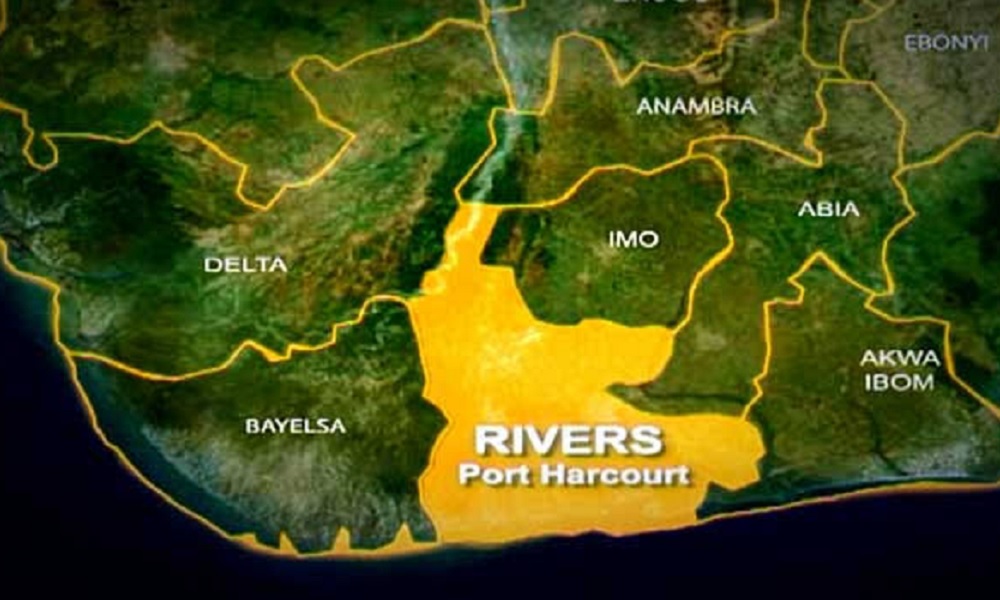
The newly appointed administrator of Andoni Local Government Area of Rivers State, Mr Atajit Francis has warned staff of the council against negligence to duty.
Francis handed down the warning at Ngo, the council headquarters, shortly after resumption of duty.
The administrator who also met with the Head of the Local Government Administration said that the third tier of government requires diligence to deliver people-oriented services.
Francis further said that under his watch, underperformance and dereliction of duty would not be condoned.
He stated, “While we are on the saddle, we shall reward diligence and hard work. We urge staff to work towards achieving set goals.
“My mandate is specified, they include sanitation, environmental development, job creation, primary education and primary health care.
“The essence is to positively impact the lives of our people, knowing that the local government is the closest tier of government to the people.”
Insisting that transparency and integrity were critical to effective grassroots development and service delivery, he said, “So I expect all staff to uphold the highest ethical standards and accountability in the discharge of their duties.”
Recall that the Rivers State’s sole administrator, Vice Admiral Ibok-Ete Ibas (rtd) recently appointed administrators to oversee the affairs of the 23 local government councils in the state after he suspended the Heads of Local Government Administration appointment by Governor Siminalayi Fubara.
News
Newcastle thrash Crystal Palace to go third in Premier League

Newcastle soared up to third in the Premier League with a 5-0 thrashing of Crystal Palace on Wednesday to close in on a return to the Champions League next season.
Jacob Murphy, Harvey Barnes, Fabian Schar and Alexander Isak were on target for the Magpies, with Marc Guehi also scoring an own goal, as Newcastle made light of the absence of manager Eddie Howe due to pneumonia.
A sixth consecutive victory in all competitions opens up a five-point lead for Newcastle over sixth-placed Chelsea, with a place in the top five good enough for Champions League qualification.
Palace remain down in 12th with their season now fully focused on an FA Cup semi-final date with Aston Villa later this month.
Newcastle travel to Villa on Saturday in a huge clash in the battle for European places.
But the League Cup winners are pulling away from the chasing pack for a top-five finish, buoyed by ending their 70-year wait for domestic silverware last month.
“That gave us huge confidence,” said Newcastle assistant manager Jason Tindall, who is was deputising for Howe, of lifting the League Cup.
“We were able to enjoy that for a period of time but we knew what our objectives were for the remainder of the season – to finish as high up the league table as possible.
“The manager always leads and sets that example of never switching off. They’ve gone out there, been really consistent and delivering performances.”
Isak wasted two big early chances to open the scoring when he was firstly denied by a fine Dean Henderson save and then headed over from Murphy’s enticing cross.
Newcastle only had to wait until the 14th minute to open the scoring when Murphy blasted in a remarkable finish from a narrow angle.
– Eze fluffs penalty –
Palace were gifted the chance to get back into the game when goalkeeper Nick Pope rushed off his line and wiped out Chris Richards in his attempt to punch the ball clear.
After a lengthy VAR check, a penalty was finally awarded.
However, Eberechi Eze’s lackadaisical spot-kick was easily collected by the relieved Pope.
Within a minute, Newcastle had doubled their lead when Guehi turned into his own net as he attempted to block Barnes’ cross towards Isak.
The England defender has been regularly linked with a move to Tyneside and has now scored an own goal in each of Palace’s two meetings with Newcastle this season.
“There are some days where nothing works, and at the same time everything worked for Newcastle,” said Palace boss Oliver Glasner.
“We couldn’t deal with their intensity and directness and pace.”
It went from bad to worse for the visitors as Barnes continued his fine form with a composed finish for his fourth goal in three games.
Murphy’s free-kick was then flicked in by Schar to make it 4-0 before the break.
The normally lethal Isak continued to be frustrated in front of goal as Henderson spread himself to deny another effort from point-blank range early in the second half.
However, the Swedish striker finally got his 25th goal of the season with a fine finish from outside the area just before the hour mark.
News
Simon Ekpa engages new lawyer ahead of trial in Finland
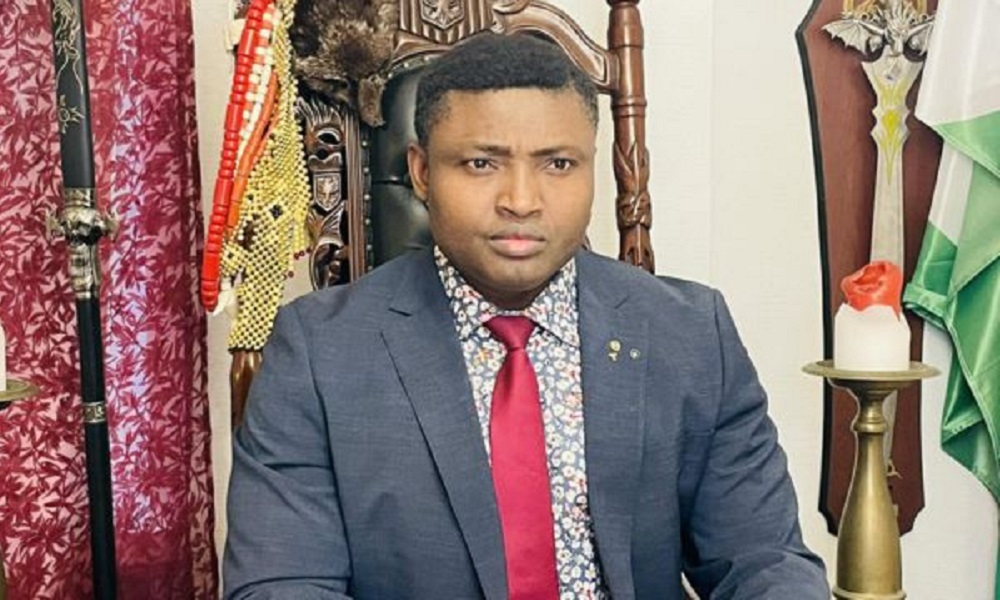
Simon Ekpa, the controversial Biafra separatist, has appointed a new legal representative ahead of his upcoming trial in Finland scheduled for June 2025.
In November 2024, Ekpa, a self-proclaimed leader of the proscribed Indigenous People of Biafra, IPOB, was arrested by law enforcement in Finland.
He was subsequently sent to prison by the district court of Päijät-Häme for “spreading terrorist propaganda on social media.”
Ekpa was said to have committed the crime in 2021 in Lahti municipality.
He is accused of instigating violence and inciting terror in the South East of Nigeria through his social media pages.
Nigerian authorities have been demanding the extradition of Ekpa, a dual citizen of Finland and Nigeria, for prosecution.
However, the effort has been yielded the right result.
Last year, Mikko Laaksonen, the senior detective superintendent at the National Bureau of Investigation, NBI, in Finland, disclosed that a Finnish district court fixed May 2025 for the prosecution to file charges against Ekpa.
Subsequently, Laaksonen said Ekpa will remain in custody until his trial since the alleged offence is not bailable.
In March, Nigeria sanctions committee (NSC) designated Ekpa and 16 entities as alleged terrorism financiers in the country.
The committee also ordered the freezing of the bank accounts connected to the alleged terrorism financiers.
According to BBC Pidgin, Ekpa has changed his lawyer because the previous one had “retired from service.”
Kaarle Gummerus, Ekpa’s new lawyer, said he had received the pre-trial file of his client and he is “currently checking through.”
Gummerus added that Ekpa will appear in court in June 2025 to face trial.
-
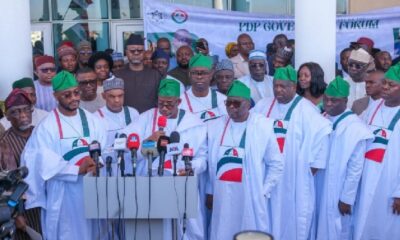
 News18 hours ago
News18 hours agoPDP governors declare support for Tinubu
-

 News21 hours ago
News21 hours agoEx-finance minister rearrested in new fraud probe
-
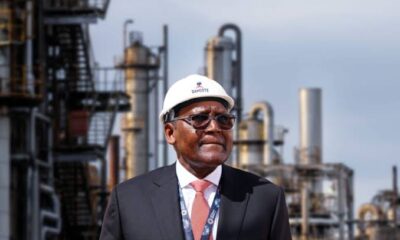
 News18 hours ago
News18 hours agoHope for Nigerians as Dangote refinery slashes petrol price again
-

 News21 hours ago
News21 hours agoFubara: How can I forgive somebody who never requested for it– Wike
-

 News22 hours ago
News22 hours agoAlleged Se3ual Harassment: Natasha Declines Out-Of-Court Settlement Proposal By Akpabio’s Counsel
-

 News19 hours ago
News19 hours agoRivers Emergency Rule: Abbas inaugurates 21-member panel
-

 News18 hours ago
News18 hours agoN1.3trn CBEX Scam: EFCC caution Nigerians against Ponzi Schemes
-
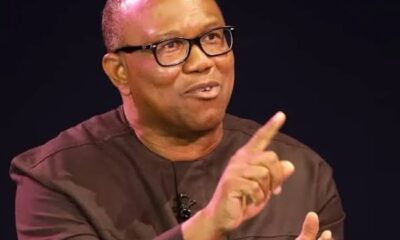
 News20 hours ago
News20 hours agoPeter Obi asks president Tinubu to suspend France trip






